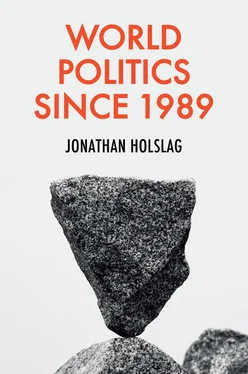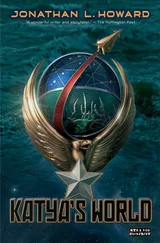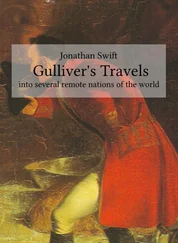211 212
212 213
213 214
214 215
215 216
216 217
217 218
218 219
219 221
220 222
221 223
222 224
223 225
224 226
225 227
226 228
227 229
228 230
229 231
230 232
231 233
232 234
233 235
234 236
235 237
236 238
237 239
238 240
239 241
240 242
241 243
242 244
243 245
244 246
245 247
246 248
247 249
248 250
249 251
250 252
251 253
252 254
253 255
254 256
255 257
256 258
257 259
258 260
259 261
260 262
261 263
262 264
263 265
264 266
265 267
266 268
267 269
268 270
269 271
270 272
271 273
272 274
273 275
274 276
275 277
276 278
277 279
278 280
279 281
280 282
281 283
282 284
283 285
284 286
285 287
286 288
287 289
288 290
289 291
290 292
291 293
292 294
293 295
294 296
295 297
296 298
297 299
298 300
299 301
300 302
301 303
302 304
303 305
304 306
305 307
306 308
307 309
308 310
309 311
310 312
311 313
312 314
313 315
314 316
315 317
316 318
317 319
318 320
319 321
320 322
321 323
322 324
323 325
324 326
325 327
326 328
327 329
328 330
329 331
330 332
331 369
332 370
333 371
334 372
335 373
336 374
337 375
338 376
339 377
340 378
341 379
342 380
343 381
344 382
345 383
346 384
347 385
348 386
349 387
350 388
351 389
352 390
353 391
354 392
355 393
356 394
357 395
358 396
359 397
360 398
361 399
362 400
363 401
364 402
365 403
366 404
367 405
“Important and timely.”
James Appathurai, Deputy Assistant Secretary General for Political Affairs and Security Policy, NATO
“This is an utterly fascinating, carefully argued and lucidly drafted analysis of the current global circumstances. Holslag provides a deft, informed and multifaceted argument to explain how the highly optimistic views of the future of world politics failed to materialize after the end of the Cold War.”
Sumit Ganguly, Indiana University
“Rich and comprehensive, Jonathan Holslag’s book takes readers on a journey of discovery through the major changes in world politics over the past three decades. I will be assigning this book for my undergraduate international relations classes.”
Kun-Chin Lin, University of Cambridge
“This wonderfully written book takes the reader on a fascinating journey through the complexity of the last three decades of world politics. Jonathan Holslag connects the dots of a fragmented and scattered global landscape, offering multiple roads to understanding.”
Federica Mogherini, Rector of the College of Europe, Former European High Representative for Foreign Affairs
WORLD POLITICS SINCE 1989
JONATHAN HOLSLAG
polity
Copyright © Jonathan Holslag 2021
The right of Jonathan Holslag to be identified as Author of this Work has been asserted in accordance with the UK Copyright, Designs and Patents Act 1988.
First published in 2021 by Polity Press
Polity Press
65 Bridge Street
Cambridge CB2 1UR, UK
Polity Press
101 Station Landing
Suite 300
Medford, MA 02155, USA
All rights reserved. Except for the quotation of short passages for the purpose of criticism and review, no part of this publication may be reproduced, stored in a retrieval system or transmitted, in any form or by any means, electronic, mechanical, photocopying, recording or otherwise, without the prior permission of the publisher.
ISBN-13: 978-1-5095-4674-9
A catalogue record for this book is available from the British Library.
Library of Congress Cataloging-in-Publication Data
Names: Holslag, Jonathan, author.
Title: World politics since 1989 / Jonathan Holslag.
Description: Cambridge, UK ; Medford, MA : Polity Press, 2021. | Includes bibliographical references and index. | Summary: “A brilliant account of how the world squandered the opportunities of the post-Cold War era”--Provided by publisher.
Identifiers: LCCN 2020054809 (print) | LCCN 2020054810 (ebook) | ISBN 9781509546725 (hardback) | ISBN 9781509546749 (epub)
Subjects: LCSH: World politics--20th century. | World politics--21st century.
Classification: LCC D443 .H6435 2021 (print) | LCC D443 (ebook) | DDC 909.83/1--dc23
LC record available at https://lccn.loc.gov/2020054809LC ebook record available at https://lccn.loc.gov/2020054810
The publisher has used its best endeavours to ensure that the URLs for external websites referred to in this book are correct and active at the time of going to press. However, the publisher has no responsibility for the websites and can make no guarantee that a site will remain live or that the content is or will remain appropriate.
Every effort has been made to trace all copyright holders, but if any have been overlooked the publisher will be pleased to include any necessary credits in any subsequent reprint or edition.
For further information on Polity, visit our website: politybooks.com
No society is fortunate when its walls are standing while its morals are in ruins. Scipio
WALLPECKERS, THEY WERE CALLED. IN THE WINTER OF 1989, hundreds of wallpeckers or Mauerspechte descended on the Berlin Wall. Armed with hammers and chisels, they attacked the imposing barrier of concrete and barbed wire. One year later, the entire Iron Curtain between the Soviet Union and the West came down. It was an electric moment. “A second heart implanted,” wrote a student in her diary, “can’t breathe any more.” 1From then onwards, the world experienced a period of opening up, of fading political fault lines, diminishing travel restrictions, and lowering barriers against trade. This was the age of globalization, of growing connectivity, commerce, and prosperity, growth that came with the expectation that the remaining vestiges of authoritarianism would make place for freedom.
The high tide of globalization appeared to hold opportunities for all. 2Emerging powers like South Korea, China, and Vietnam received access to the technology, capital, and consumer markets of rich societies, like the United States, Western Europe, and Japan. Rich citizens benefited from cheap goods, from toys to mobile phones, and specialized into services. Countries in Africa, Latin America, and the Middle East profited from growing raw material exports and investment. Trade propelled specialization between nations and specialization brought more growth to all. It was called a great convergence. 3There were still threats, to be sure. But these threats were expected to make countries work together. Terrorism, for example, pirates that targeted global shipping, criminals that penetrated digital networks – or pandemics. Experts spoke of security interdependence, of global common goods requiring a common policy. 4A teenager asked to name the most urgent challenge facing the world would likely mention pollution or climate change.
If there was competition, it would be a peaceful contest for connectivity, conducted by multinationals and start-up companies instead of states and soldiers. Container ships not aircraft carriers shaped the fortune of the major powers. Cheap airlines made city trips affordable. Internet traffic exploded. Global economic production grew. Extreme poverty retreated. Magazines wrote about a renaissance in Africa. 5“China’s arrival has improved Africa’s infrastructure and boosted its manufacturing sector,” a magazine trumpeted. “Africa’s enthusiasm for technology is boosting growth.” 6India with its hundreds of millions of paupers was set to shine. Globalization augured a golden era – or at least an exit from an era of iron.
Читать дальше

![Деннис Лихэйн - Когда под ногами бездна [Since We Fell ru]](/books/25722/dennis-lihejn-kogda-pod-nogami-bezdna-since-we-fe-thumb.webp)










